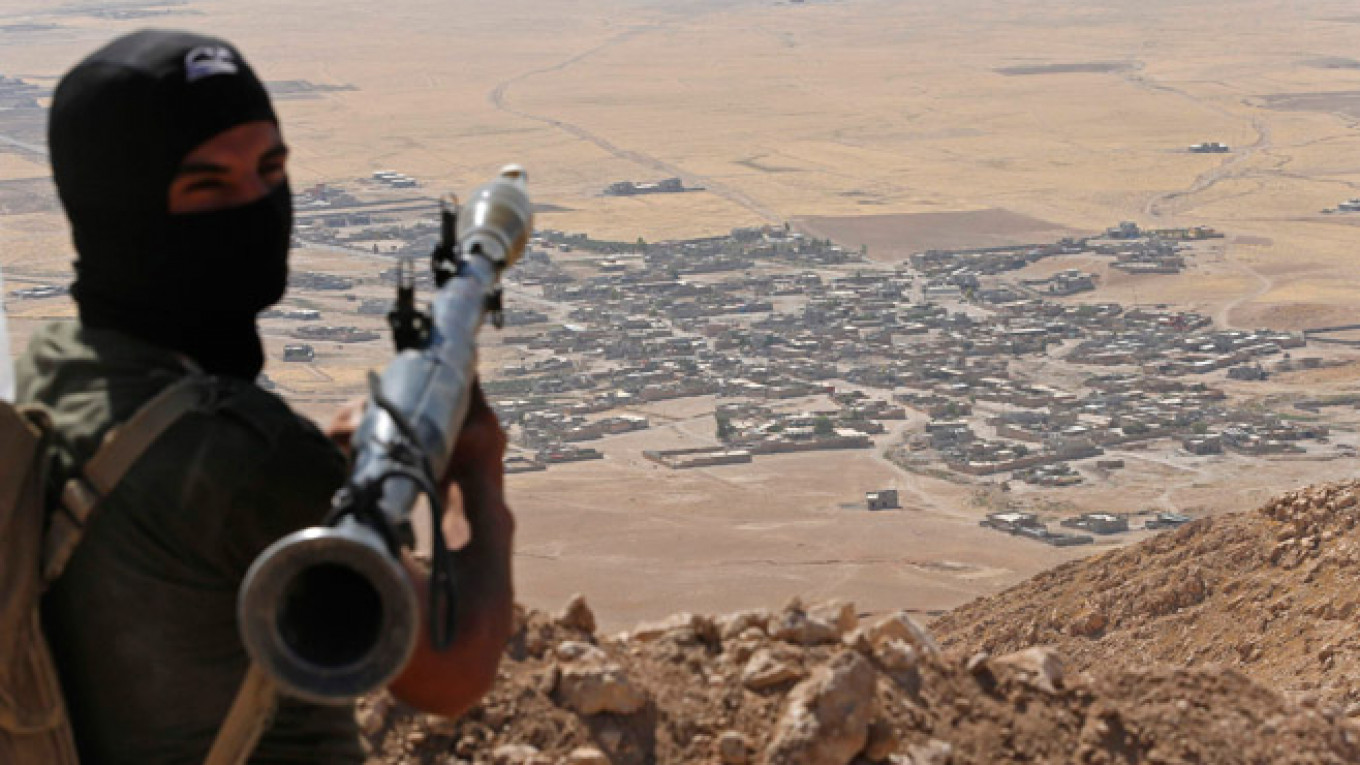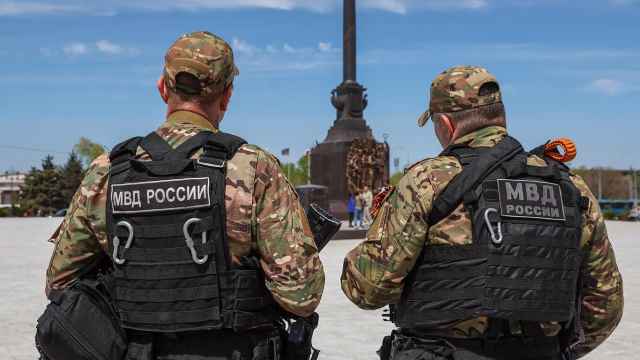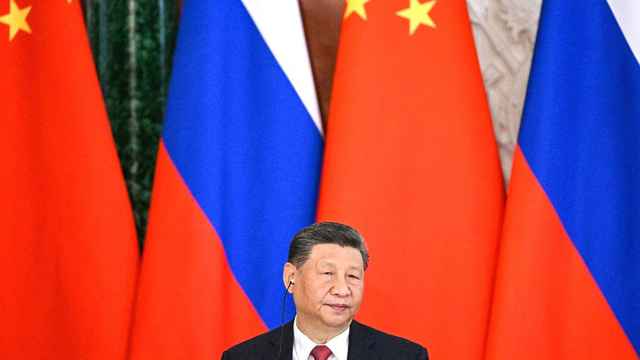Central Asia is at risk of being used by Islamic State terrorists to transport nuclear weapons, an anti-terrorism official warned Tuesday.
Sources of iodizing radiation have been stolen from various points around the globe, and Central Asia offers the easiest route from parts of the Middle East to Europe, Andrei Novikov, head of the Commonwealth of Independent States Anti-Terrorism Center, warned in comments carried by RIA Novosti on Tuesday. The report quoted a speech Novikov delivered at a meeting in Almaty before his colleagues in intelligence agencies throughout the CIS countries.
"We are also taking into account the possible threat of CIS territories being used [by terrorists], particularly Central Asia, for the transportation of nuclear materials and other dangerous goods, as well as technologies and equipment related to weapons of mass destruction," Novikov said, according to RIA Novosti.
The Islamic State, a radical jihadi group, declared its intention to use nuclear weapons in June, Novikov said, and they likely have the means to develop the materials for use.
"I would like to remind you that militants from this organization seized the second-largest city in Iraq — Mosul — where they say they stole dozens of kilograms of nuclear materials from the local university. They also managed to get a hold of assets worth about $1 billion. … There are reasonable grounds to believe that these terrorists will not have financial difficulties in attracting relevant specialists and purchasing equipment," Novikov was cited as saying by RIA Novosti.
In early July, Mohamed Ali Alhakim, the Iraqi ambassador to the United Nations, warned UN Secretary General Ban Ki Moon that nearly 40 kilograms of uranium compounds had been stolen by members of the Islamic State.
The UN atomic agency responded at that time by saying the materials did not pose a major threat because they were only "low grade," and that it would take years to develop them for use as a weapon of mass destruction.
Contact the author at [email protected]
A Message from The Moscow Times:
Dear readers,
We are facing unprecedented challenges. Russia's Prosecutor General's Office has designated The Moscow Times as an "undesirable" organization, criminalizing our work and putting our staff at risk of prosecution. This follows our earlier unjust labeling as a "foreign agent."
These actions are direct attempts to silence independent journalism in Russia. The authorities claim our work "discredits the decisions of the Russian leadership." We see things differently: we strive to provide accurate, unbiased reporting on Russia.
We, the journalists of The Moscow Times, refuse to be silenced. But to continue our work, we need your help.
Your support, no matter how small, makes a world of difference. If you can, please support us monthly starting from just $2. It's quick to set up, and every contribution makes a significant impact.
By supporting The Moscow Times, you're defending open, independent journalism in the face of repression. Thank you for standing with us.
Remind me later.






